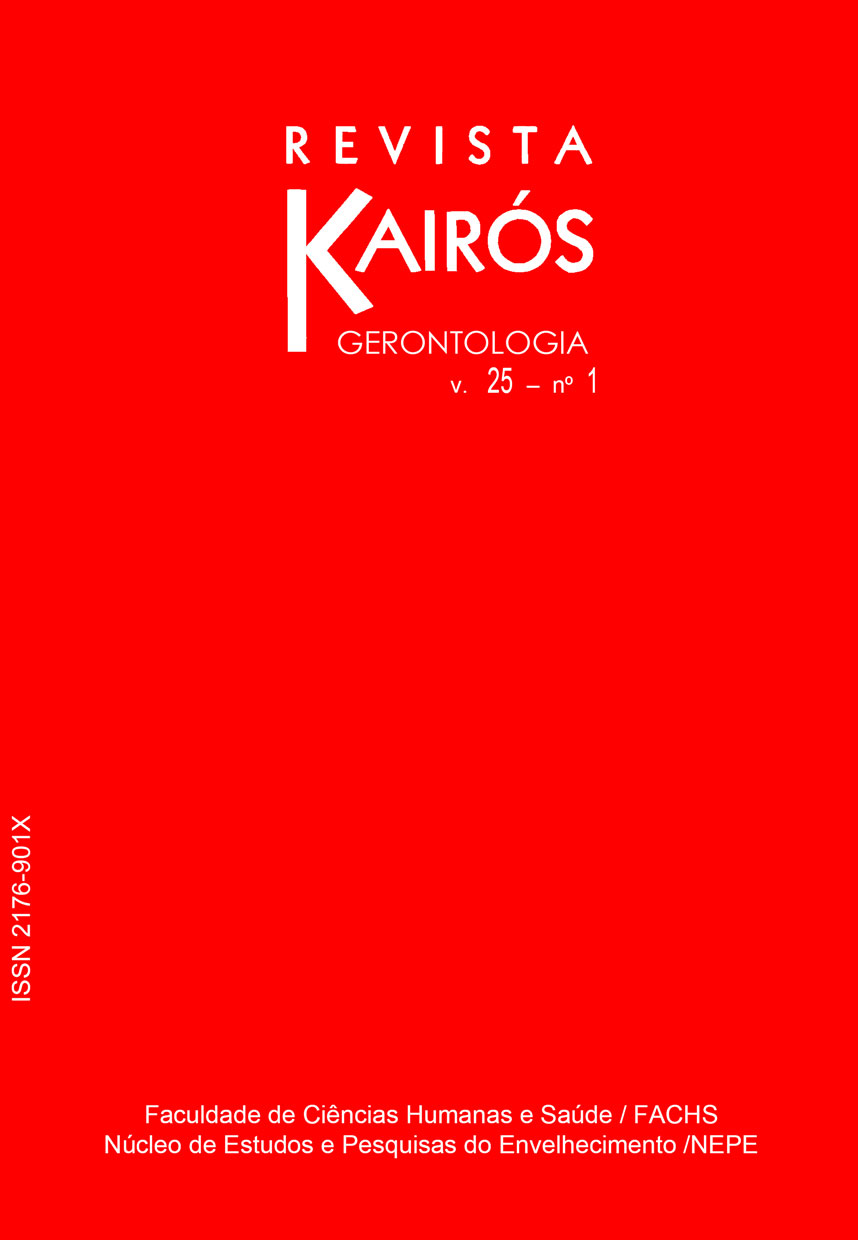Velhice & Sexualidade: tramas da diversidade. [Resenha].
DOI :
https://doi.org/10.23925/2176-901X.2022v25i1p9-17Mots-clés :
Gerontologia, Velhice & Sexualidade, Tramas da diversidadeRésumé
Entramar la diversidad supone una descentración respecto a una lógica que reduce a lo hegemónico y normativo como únicos modos de narración. Apelar a los “otros relatos” implica reconocer aquellos que se ciernen en contextos históricos, geográficos y sociales lejanos a los sentidos comunes. Pero también los que permitan examinar las sucesivas transformaciones de los modos en que se piensa y actúa la sexualidad y la vejez. Tramas que brotan, enhebran y anuncian la emergencia de las “otras tramas”, para así dudar, desordenar y volver a construir los relatos esperables. Lo que ha dado lugar, a que este libro, provoque al pensamiento, analice los conceptos, y proponga narraciones alternativas. Tomar la sexualidad en la vejez, aún en pleno siglo XXI, sigue teniendo un peso subversivo y cuestionador. Nos encontramos con una multiplicidad de discursos y formas metafóricas que produjeron, en gran parte de la cultura occidental, resistencias y limitaciones explícitas e implícitas de gran magnitud. Desde la negación del erotismo por su asociación con la fealdad, entre los griegos y romanos; el rechazo cristiano por la menor posibilidad de reproducción, o la mirada deserotizada, patologizada y perversa, tan burguesa y victoriana. Frente a lo que emerge un relato, aparentemente vaciado de prejuicios, que en gran medida será integrado por la Gerontología, en el que la sexualidad aparece como una posibilidad cierta, solo limitada por la negación de una sociedad incapaz de visualizarla. Lo que llevó a lecturas, muchas veces fundamentadas y muchas veces acríticas, donde había que mostrar que había sexualidad, con razón científicas, pero había que mostrar también que la sexualidad tenía menos cambios de las que tenía, con razones, seguramente más ideológicas. Destino que le cabe a la lectura gerontológica producida desde mediados del siglo XX donde, para criticar ese otro relato de la vejez, tan diferenciado y deficitario, hubo que transformarlo en algo tan parecido a la adultez, y en donde, toda alusión a una diferencia, que aludiera a ese “viejo relato”, se convirtió en prejuicio. Ciertamente nos encontramos en un momento histórico donde la sexualidad en la vejez se convierte en un objeto de demostración permanente por diversos motivos: ante la mirada incrédula de una sociedad que lee el cuerpo de la vejez disociado del erotismo; por ser el tema que mejor asimila la vejez al resto de las edades, o incluso como un curioso objeto de sorpresa y mercadeo. En esta compilación de textos encontramos argumentaciones diferentes y en algún punto en debate, respecto a conceptos como la sexualidad y la vejez. Uno de los modos de tomar posición es ubicando la temática desde distintos puntos de partida. Algunos lo harán desde el género, la orientación sexual, el HIV, la pornografía, los saberes del prejuicio tradicional, la gerontología, los medicamentos tradicionales, o en grupos de Drag, espacios LGBT o tantos otros lugares desde donde se interroga, piensa y crítica el objeto del libro. La lectura de sus capítulos permite rescatar y reconocer los saberes y prácticas generacionales relativas a lo femenino y lo masculino, lo héterosexual y lo homosexual o lo cisgénero y lo transgénero. Lo que permite un panorama de representaciones que circulan y entremezclan en un momento histórico y en contextos ubicado en ciudades, grupos o medicamentos específicos. De esta manera, se presentan diversas versiones a partir de las cuales se ponen en cuestión la uniformización del viejo y su sexualidad producida por ciertos estudios de la vejez. Cada artículo también, para explorar aspectos diferenciales, contará con abordajes metodológicos que permitan reflejar desde fenómenos de mayor magnitud, alcanzados a través de revisiones bibliográficas o de prensa, hasta la indagación etnográfica o cualitativa que permitirá conocer el minucioso tránsito de significados y sentidos producidos en pequeños grupos. Los textos discuten los sentidos otorgados por los propios viejos respecto a su sexualidad. Lo que pone en tensión un punto de mucho interés para el investigador, aquello que la gente dice es el reflejo de sentidos comunes o de sus vivencias más sentidas. Pero acaso, ¿lo que se siente no se encuentra atravesado por los sentidos establecidos, la geografía sensible de nuestro cuerpo no fue habitada tempranamente por historias de género, de etnias o de generaciones? Asimismo ¿hasta qué punto podemos desestimar lo dicho a partir de una suposición de conocimientos prejuiciosos? Discusión que puede dar lugar a debates que profundicen el pensamiento crítico.
Références
Iacub, R. Velhice & Sexualidade: tramas da diversidade. Resenha a livro organizado por Raimunda Silva D’Alencar y Monique Borba Cerqueira. Ilhéus, BA: Unitus: Editora da Universidade Estadual de Santa Cruz, UESC, 2021. (342 p.).
Téléchargements
Publié-e
Comment citer
Numéro
Rubrique
Licence
© Revista Kairós-Gerontologia 2022

Cette œuvre est sous licence Creative Commons Attribution 4.0 International.
Kairós Gerontologia é detentora dos direitos autorais de todos os artigos publicados por ela. A reprodução total dos artigos desta revista em outras publicações, ou para qualquer outro fim, por quaisquer meios, requer autorização por escrito do editor deste periódico. Reproduções parciais de artigos (resumo, abstract, mais de 500 palavras de texto, tabelas, figuras e outras ilustrações) deverão ter permissão por escrito do editor e dos autores.

